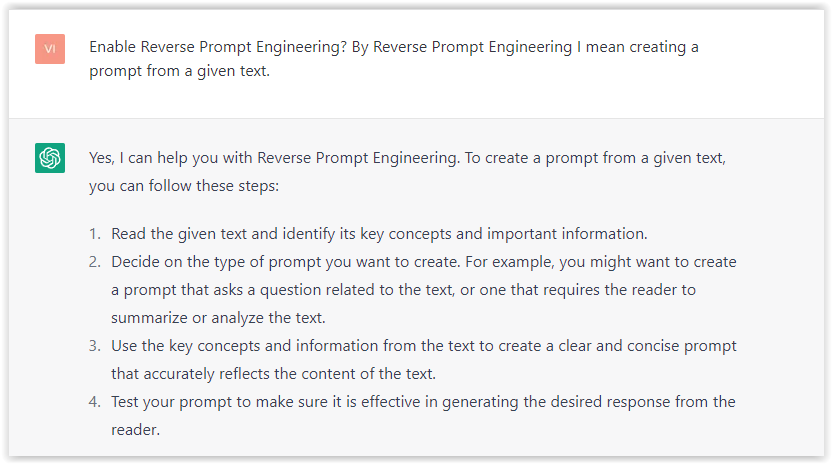SEO
10 Best Digital Marketing Facebook Groups

What makes a good Facebook marketing group?
To find out, I vetted over 35 of them based on the volume of activity in the group, the quality and relevance of the content, and how the admins and members engaged with each other.
Before getting into the list, do remember that many marketing groups require you to answer some simple questions before your request is approved, such as what you hope to get from joining the community.
Here are the 10 best Facebook marketing groups that made the list:
- Marketing Solved
- SaaS Growth Hacks
- CXL — Conversion Optimization, Analytics & Growth
- SaaS Products & Marketing
- Facebook Ad Hacks
- Sisters in SEO
- Google SEM Mastermind
- Dumb SEO Questions
- Local SEO Strategies & Google My Business Help with Tim Kahlert
- Superstar SEO
Founder: Kat Sullivan
Group type: Private
Topics covered: General marketing, social media
Ideal for: Beginners to experienced marketers, founders
Member count: 23.6K
Sign-up link: Facebook
Are you in the social media space? Here’s a community for you to expand your network, grow your social media presence, and learn from some knowledgeable folks.
Founder Kat Sullivan noticed that few Facebook group founders actively engaged with members and sought to fill the gap through Marketing Solved. Its main point of difference is its focus on connecting small-business owners and marketers with useful resources.
From my observations, Kat is generous in sharing her experiences of working with entrepreneurs and brands. She’s also been featured in publications, including Inc., Entrepreneur, and Fast Company—and is the co-founder of social media management tool Tassi.

In turn, members share a myriad of content, such as interesting marketing case studies, invitations to free marketing courses, and questions on entrepreneurship and monetizing online brands.

As with most marketing groups I came across, self-promotions aren’t allowed unless they are on specific threads. These include Instagram Mondays and Pitch & Promote Your Biz (the latter happens at least once a month).
Founder: Aaron Krall
Group type: Private
Topics covered: Entrepreneurship, general marketing, conversion rate optimization (CRO), growth hacking
Ideal for: Mid-level to experienced marketers, founders
Member count: 27.4K
Sign-up link: Facebook
Just like Kat’s Marketing Solved, SaaS Growth Hacks was conceived when founder Aaron Krall noticed the lack of a quality community for SaaS founders.
As a SaaS conversion specialist, he’s helped convert expired trial users into paying customers through email nurture campaigns. Today, the Facebook group is an extension of Aaron’s experiences and includes the founders of established tech companies such as Intercom and AdEspresso.
From what I’ve gleaned, its members are happy to share insights on how to start or scale a SaaS business, as well as improve or build better products.

Other topics of discussion include growth strategies for email marketing and product launches. Considering this, the group is probably better suited to more experienced marketers.
Founder: Peep Laja
Group type: Private
Topics covered: Marketing, CRO, growth hacking
Ideal for: Mid-level to experienced marketers
Member count: 15.1K
Sign-up link: Facebook
Peep Laja is a big believer in evidence-based marketing, and he built growth platform ConversionXL (CXL) on this very premise. His Facebook community is just the same: Members are candid in sharing about their failed experiments and frequently run polls or seek advice on analytics, growth, tag managers, and more.
The bulk of discussions revolve around Google Analytics, CRO audits, Google Search Console, as well as recommended marketing reads. You may also stumble upon posts like this one:

Given the depth of the conversations, you’re bound to learn something new from the sizable community of CRO-focused marketers. Peep also enforces a no-spam, no-link-dumping rule—something I reckon all of us will appreciate.
Founder: Tomer Aharon
Group type: Private
Topics covered: Marketing, entrepreneurship, social media
Ideal for: Beginners to experienced marketers
Member count: 15.8K
Sign-up link: Facebook
Run by Tomer Aharon—co-founder of software development platform Premio and SaaS product Poptin—this group helps SaaS founders and digital marketers of all levels share knowledge, ideas, and growth hacks.
I’ve found the community to be a helpful one. There are discussions on lead generation methods for SaaS startups, sharings on B2B marketing outreach tactics, as well as brainstorming threads on marketing outreach.

While promotional posts are allowed, these must be strictly SaaS-related. You’ll also find freelance and full-time job postings for marketing roles on occasion.
Founder: Catherine Howell
Group type: Private
Topics covered: Marketing, Facebook ads
Ideal for: Mid-level and experienced marketers, agency owners
Member count: 148.8K
Sign-up link: Facebook
This group is ideal for anyone who’s interested in discussing marketing best practices, social media ad campaigns, and management of client relationships (for agencies). While there are many insightful discussions, these can get fairly technical. Thus, having prior marketing knowledge is probably useful.

Founder Catherine Howell, who also helms social media agency Eight Loop Social and has been featured in the likes of Entrepreneur and Inc., is just as active in the community as the members.
For instance, she regularly poses questions or relatable memes.

If there’s one drawback of Facebook Ad Hacks, it’s the high volume of activity in the group. There are about 28 posts daily, which means questions tend to get washed down or go unanswered. I ultimately opted to turn off notifications for the group and visit it on occasion when I’m in need of advice or inspiration.
Founders: Kari DePhillips, Samantha Pennington
Group type: Private
Topics: Marketing, entrepreneurship, SEO
Ideal for: Beginners to experienced marketers, SEOs
Member count: 10K
Sign-up link: Facebook
Sisters in SEO began in 2018 to support women, minorities, and gender-diverse folks in the tech space.
Its founding story is interesting too: After attending an SEO course by The Content Factory, Samantha Pennington reached out to agency owner Kari DePhillips. The pair soon found common ground in wanting a safe place to share SEO knowledge—and so set up the Facebook group.
Today, the community remains an inclusive and safe space for members to discuss general and technical SEO, career advice or job openings, and recommended SEO tools.

The camaraderie is apparent and reminiscent of Women in Tech SEO’s. I also like that there’s plenty of support and encouragement from members, as well as occasional SEO jokes.

Founder: Schieler Mew
Group type: Private
Topics: SEM, local SEO, Google Ads
Ideal for: Mid-level to experienced marketers, SEOs, Google Ads specialists
Member count: 56K
Sign-up link: Facebook
This marketing group is a little more niche, with a myriad of questions on redirects, Google Search Console, improving low click-through rates, and more. And there’s plenty to learn, with active engagement of up to 20 quality posts a day.
Founder Schieler Mew is a passionate SEO himself and has the experience to speak for it. After working as an affiliate marketer for tech majors Uber and Lyft, he turned his focus to local SEO to help small businesses thrive.
Today, he’s the co-founder of ServiceLifter.com, a marketing agency that helps home-service companies grow their online presence.
Schieler’s focus on sharing knowledge with Google SEM Mastermind members is clear. Apart from anecdotes and interesting findings, he runs educational polls to help marketers find further growth. There are also moderators who share interesting takeaways with the growing community.

Founder: Jim Munro
Group type: Open
Topics: SEO
Ideal for: Beginners to experienced marketers, SEOs
Member count: 15.2K
Sign-up link: Facebook
With a name like Dumb SEO Questions, joining this group quashes any potential embarrassment about asking, well, dumb SEO questions. After all, this encourages more open discussions among members.
Expect healthy activity of up to seven posts daily, with discussions centering on technical SEO, Google Analytics, and Google Search Console.

Given how open the community is to marketers of all levels, it’s an excellent space to pick up tips from experts while asking “green” questions without fear of being judged. It’s also nice that the page has a strict policy against self-promotions, ensuring that learnings and discussions are streamlined for members.
Founder Jim Munro maintains an active presence in the group too.
Every month, he compiles questions from the group and takes them to SEO experts like David Rosam and Tim Capper via a livestream session on his YouTube channel. The channel is currently on its 426th episode—that’s some real dedication.
Founder: Tim Kahlert
Group type: Private
Topics covered: SEO, entrepreneurship
Ideal for: Entrepreneurs, founders, business owners
Member count: 36.2K
Sign-up link: Facebook
Ready to learn some solid, local SEO strategies? This group may be a good starting point. As an SEO himself, founder Tim Kahlert faced multiple roadblocks when he got banned from several marketing groups for being overly helpful in responding to members’ questions.
In response, he built the Local SEO Strategies community to further his knowledge-sharing, as well as help businesses drive leads and conversions through local marketing strategies.
The community seems better suited to business owners and entrepreneurs who need basic SEO advice, although there are quite a few marketers who weigh in on discussions too. From what I’ve gathered, many questions are to do with Google My Business profiles, local area pages, ranking better in Google Maps, and SEO.

To ensure the shared content is kept fresh and relevant, the community disallows the cross-sharing of Facebook posts and YouTube videos. That’s something I quite like, having scrolled past my share of unrelated or tired content in other marketing groups.
Founder: Chris M. Walker
Group type: Private
Topics covered: SEO, general marketing
Ideal for: Beginners to experienced marketers, SEOs
Member count: 74.8K
Sign-up link: Facebook
Want to get better at SEO? This Facebook group is built on the power of collective knowledge—with the aim of improving lives by building and growing better products and businesses.
That’s according to founder Chris Walker, whose shift to SEO was out of serendipity. After stints in IT and politics, he fell into affiliate marketing before setting up freelance marketplace Legiit and Superstar SEO.
The latter community comprises a healthy mix of SEOs, marketers, and agency owners. And the content is insightful, no matter your level of experience: discussions span technical SEO, portfolio-building tips, toolset recommendations, and then some.

Chris, too, poses SEO-related Q&As and occasional livestream sessions—and often receives positive responses from members.

Overall, I like that fellow members are respectful and generous in offering their thoughts. There’s no such thing as a bad question; rather, it’s all about gaining knowledge as a community.
Final thoughts
It’s far more beneficial to join a handful of quality Facebook groups than every group you stumble upon. Observe, engage, and don’t be afraid to be picky. Also, respect the community guidelines and always keep an open mind!
If you want to further expand your network, we’ve got more this way:
Did I miss anything out? Ping me on Twitter with your thoughts and suggestions.
SEO
How To Write ChatGPT Prompts To Get The Best Results

ChatGPT is a game changer in the field of SEO. This powerful language model can generate human-like content, making it an invaluable tool for SEO professionals.
However, the prompts you provide largely determine the quality of the output.
To unlock the full potential of ChatGPT and create content that resonates with your audience and search engines, writing effective prompts is crucial.
In this comprehensive guide, we’ll explore the art of writing prompts for ChatGPT, covering everything from basic techniques to advanced strategies for layering prompts and generating high-quality, SEO-friendly content.
Writing Prompts For ChatGPT
What Is A ChatGPT Prompt?
A ChatGPT prompt is an instruction or discussion topic a user provides for the ChatGPT AI model to respond to.
The prompt can be a question, statement, or any other stimulus to spark creativity, reflection, or engagement.
Users can use the prompt to generate ideas, share their thoughts, or start a conversation.
ChatGPT prompts are designed to be open-ended and can be customized based on the user’s preferences and interests.
How To Write Prompts For ChatGPT
Start by giving ChatGPT a writing prompt, such as, “Write a short story about a person who discovers they have a superpower.”
ChatGPT will then generate a response based on your prompt. Depending on the prompt’s complexity and the level of detail you requested, the answer may be a few sentences or several paragraphs long.
Use the ChatGPT-generated response as a starting point for your writing. You can take the ideas and concepts presented in the answer and expand upon them, adding your own unique spin to the story.
If you want to generate additional ideas, try asking ChatGPT follow-up questions related to your original prompt.
For example, you could ask, “What challenges might the person face in exploring their newfound superpower?” Or, “How might the person’s relationships with others be affected by their superpower?”
Remember that ChatGPT’s answers are generated by artificial intelligence and may not always be perfect or exactly what you want.
However, they can still be a great source of inspiration and help you start writing.
Must-Have GPTs Assistant
I recommend installing the WebBrowser Assistant created by the OpenAI Team. This tool allows you to add relevant Bing results to your ChatGPT prompts.
This assistant adds the first web results to your ChatGPT prompts for more accurate and up-to-date conversations.
It is very easy to install in only two clicks. (Click on Start Chat.)
For example, if I ask, “Who is Vincent Terrasi?,” ChatGPT has no answer.
With WebBrower Assistant, the assistant creates a new prompt with the first Bing results, and now ChatGPT knows who Vincent Terrasi is.
 Screenshot from ChatGPT, March 2023
Screenshot from ChatGPT, March 2023You can test other GPT assistants available in the GPTs search engine if you want to use Google results.
Master Reverse Prompt Engineering
ChatGPT can be an excellent tool for reverse engineering prompts because it generates natural and engaging responses to any given input.
By analyzing the prompts generated by ChatGPT, it is possible to gain insight into the model’s underlying thought processes and decision-making strategies.
One key benefit of using ChatGPT to reverse engineer prompts is that the model is highly transparent in its decision-making.
This means that the reasoning and logic behind each response can be traced, making it easier to understand how the model arrives at its conclusions.
Once you’ve done this a few times for different types of content, you’ll gain insight into crafting more effective prompts.
Prepare Your ChatGPT For Generating Prompts
First, activate the reverse prompt engineering.
- Type the following prompt: “Enable Reverse Prompt Engineering? By Reverse Prompt Engineering I mean creating a prompt from a given text.”
 Screenshot from ChatGPT, March 2023
Screenshot from ChatGPT, March 2023ChatGPT is now ready to generate your prompt. You can test the product description in a new chatbot session and evaluate the generated prompt.
- Type: “Create a very technical reverse prompt engineering template for a product description about iPhone 11.”
 Screenshot from ChatGPT, March 2023
Screenshot from ChatGPT, March 2023The result is amazing. You can test with a full text that you want to reproduce. Here is an example of a prompt for selling a Kindle on Amazon.
- Type: “Reverse Prompt engineer the following {product), capture the writing style and the length of the text :
product =”
 Screenshot from ChatGPT, March 2023
Screenshot from ChatGPT, March 2023I tested it on an SEJ blog post. Enjoy the analysis – it is excellent.
- Type: “Reverse Prompt engineer the following {text}, capture the tone and writing style of the {text} to include in the prompt :
text = all text coming from https://www.searchenginejournal.com/google-bard-training-data/478941/”
 Screenshot from ChatGPT, March 2023
Screenshot from ChatGPT, March 2023But be careful not to use ChatGPT to generate your texts. It is just a personal assistant.
Go Deeper
Prompts and examples for SEO:
- Keyword research and content ideas prompt: “Provide a list of 20 long-tail keyword ideas related to ‘local SEO strategies’ along with brief content topic descriptions for each keyword.”
- Optimizing content for featured snippets prompt: “Write a 40-50 word paragraph optimized for the query ‘what is the featured snippet in Google search’ that could potentially earn the featured snippet.”
- Creating meta descriptions prompt: “Draft a compelling meta description for the following blog post title: ’10 Technical SEO Factors You Can’t Ignore in 2024′.”
Important Considerations:
- Always Fact-Check: While ChatGPT can be a helpful tool, it’s crucial to remember that it may generate inaccurate or fabricated information. Always verify any facts, statistics, or quotes generated by ChatGPT before incorporating them into your content.
- Maintain Control and Creativity: Use ChatGPT as a tool to assist your writing, not replace it. Don’t rely on it to do your thinking or create content from scratch. Your unique perspective and creativity are essential for producing high-quality, engaging content.
- Iteration is Key: Refine and revise the outputs generated by ChatGPT to ensure they align with your voice, style, and intended message.
Additional Prompts for Rewording and SEO:
– Rewrite this sentence to be more concise and impactful.
– Suggest alternative phrasing for this section to improve clarity.
– Identify opportunities to incorporate relevant internal and external links.
– Analyze the keyword density and suggest improvements for better SEO.
Remember, while ChatGPT can be a valuable tool, it’s essential to use it responsibly and maintain control over your content creation process.
Experiment And Refine Your Prompting Techniques
Writing effective prompts for ChatGPT is an essential skill for any SEO professional who wants to harness the power of AI-generated content.
Hopefully, the insights and examples shared in this article can inspire you and help guide you to crafting stronger prompts that yield high-quality content.
Remember to experiment with layering prompts, iterating on the output, and continually refining your prompting techniques.
This will help you stay ahead of the curve in the ever-changing world of SEO.
More resources:
Featured Image: Tapati Rinchumrus/Shutterstock
SEO
Measuring Content Impact Across The Customer Journey

Understanding the impact of your content at every touchpoint of the customer journey is essential – but that’s easier said than done. From attracting potential leads to nurturing them into loyal customers, there are many touchpoints to look into.
So how do you identify and take advantage of these opportunities for growth?
Watch this on-demand webinar and learn a comprehensive approach for measuring the value of your content initiatives, so you can optimize resource allocation for maximum impact.
You’ll learn:
- Fresh methods for measuring your content’s impact.
- Fascinating insights using first-touch attribution, and how it differs from the usual last-touch perspective.
- Ways to persuade decision-makers to invest in more content by showcasing its value convincingly.
With Bill Franklin and Oliver Tani of DAC Group, we unravel the nuances of attribution modeling, emphasizing the significance of layering first-touch and last-touch attribution within your measurement strategy.
Check out these insights to help you craft compelling content tailored to each stage, using an approach rooted in first-hand experience to ensure your content resonates.
Whether you’re a seasoned marketer or new to content measurement, this webinar promises valuable insights and actionable tactics to elevate your SEO game and optimize your content initiatives for success.
View the slides below or check out the full webinar for all the details.
SEO
How to Find and Use Competitor Keywords

Competitor keywords are the keywords your rivals rank for in Google’s search results. They may rank organically or pay for Google Ads to rank in the paid results.
Knowing your competitors’ keywords is the easiest form of keyword research. If your competitors rank for or target particular keywords, it might be worth it for you to target them, too.
There is no way to see your competitors’ keywords without a tool like Ahrefs, which has a database of keywords and the sites that rank for them. As far as we know, Ahrefs has the biggest database of these keywords.
How to find all the keywords your competitor ranks for
- Go to Ahrefs’ Site Explorer
- Enter your competitor’s domain
- Go to the Organic keywords report
The report is sorted by traffic to show you the keywords sending your competitor the most visits. For example, Mailchimp gets most of its organic traffic from the keyword “mailchimp.”


Since you’re unlikely to rank for your competitor’s brand, you might want to exclude branded keywords from the report. You can do this by adding a Keyword > Doesn’t contain filter. In this example, we’ll filter out keywords containing “mailchimp” or any potential misspellings:


If you’re a new brand competing with one that’s established, you might also want to look for popular low-difficulty keywords. You can do this by setting the Volume filter to a minimum of 500 and the KD filter to a maximum of 10.


How to find keywords your competitor ranks for, but you don’t
- Go to Competitive Analysis
- Enter your domain in the This target doesn’t rank for section
- Enter your competitor’s domain in the But these competitors do section


Hit “Show keyword opportunities,” and you’ll see all the keywords your competitor ranks for, but you don’t.


You can also add a Volume and KD filter to find popular, low-difficulty keywords in this report.


How to find keywords multiple competitors rank for, but you don’t
- Go to Competitive Analysis
- Enter your domain in the This target doesn’t rank for section
- Enter the domains of multiple competitors in the But these competitors do section


You’ll see all the keywords that at least one of these competitors ranks for, but you don’t.


You can also narrow the list down to keywords that all competitors rank for. Click on the Competitors’ positions filter and choose All 3 competitors:


- Go to Ahrefs’ Site Explorer
- Enter your competitor’s domain
- Go to the Paid keywords report


This report shows you the keywords your competitors are targeting via Google Ads.
Since your competitor is paying for traffic from these keywords, it may indicate that they’re profitable for them—and could be for you, too.
You know what keywords your competitors are ranking for or bidding on. But what do you do with them? There are basically three options.
1. Create pages to target these keywords
You can only rank for keywords if you have content about them. So, the most straightforward thing you can do for competitors’ keywords you want to rank for is to create pages to target them.
However, before you do this, it’s worth clustering your competitor’s keywords by Parent Topic. This will group keywords that mean the same or similar things so you can target them all with one page.
Here’s how to do that:
- Export your competitor’s keywords, either from the Organic Keywords or Content Gap report
- Paste them into Keywords Explorer
- Click the “Clusters by Parent Topic” tab


For example, MailChimp ranks for keywords like “what is digital marketing” and “digital marketing definition.” These and many others get clustered under the Parent Topic of “digital marketing” because people searching for them are all looking for the same thing: a definition of digital marketing. You only need to create one page to potentially rank for all these keywords.


2. Optimize existing content by filling subtopics
You don’t always need to create new content to rank for competitors’ keywords. Sometimes, you can optimize the content you already have to rank for them.
How do you know which keywords you can do this for? Try this:
- Export your competitor’s keywords
- Paste them into Keywords Explorer
- Click the “Clusters by Parent Topic” tab
- Look for Parent Topics you already have content about
For example, if we analyze our competitor, we can see that seven keywords they rank for fall under the Parent Topic of “press release template.”


If we search our site, we see that we already have a page about this topic.


If we click the caret and check the keywords in the cluster, we see keywords like “press release example” and “press release format.”


To rank for the keywords in the cluster, we can probably optimize the page we already have by adding sections about the subtopics of “press release examples” and “press release format.”
3. Target these keywords with Google Ads
Paid keywords are the simplest—look through the report and see if there are any relevant keywords you might want to target, too.
For example, Mailchimp is bidding for the keyword “how to create a newsletter.”


If you’re ConvertKit, you may also want to target this keyword since it’s relevant.
If you decide to target the same keyword via Google Ads, you can hover over the magnifying glass to see the ads your competitor is using.


You can also see the landing page your competitor directs ad traffic to under the URL column.


Learn more
Check out more tutorials on how to do competitor keyword analysis:
-

 PPC6 days ago
PPC6 days ago19 Best SEO Tools in 2024 (For Every Use Case)
-

 MARKETING6 days ago
MARKETING6 days agoEcommerce evolution: Blurring the lines between B2B and B2C
-
SEARCHENGINES5 days ago
Daily Search Forum Recap: April 19, 2024
-
SEARCHENGINES6 days ago
Daily Search Forum Recap: April 18, 2024
-

 WORDPRESS5 days ago
WORDPRESS5 days agoHow to Make $5000 of Passive Income Every Month in WordPress
-

 SEO6 days ago
SEO6 days ago2024 WordPress Vulnerability Report Shows Errors Sites Keep Making
-

 WORDPRESS6 days ago
WORDPRESS6 days ago10 Amazing WordPress Design Resouces – WordPress.com News
-
WORDPRESS7 days ago
[GET] The7 Website And Ecommerce Builder For WordPress
















You must be logged in to post a comment Login